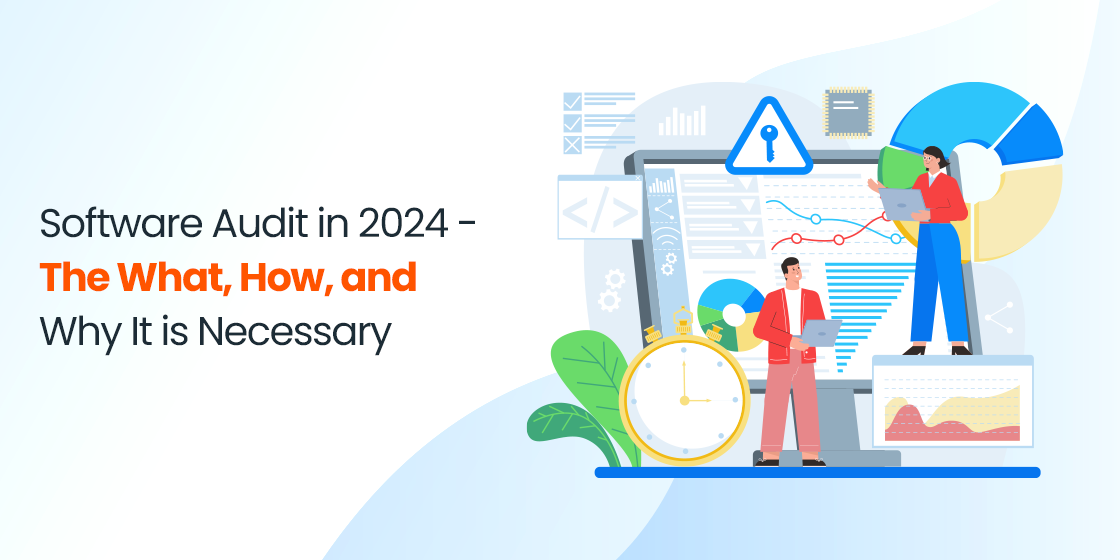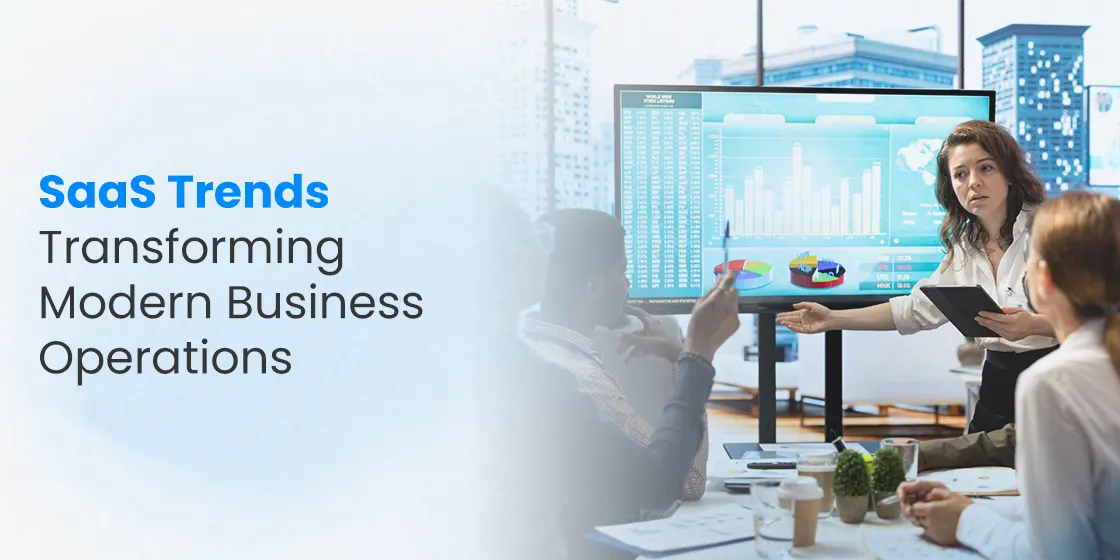Table of Content
Discover the Importance and Process of Software Audit in 2024 for Organizations
In today’s digitally driven world, software has become the backbone of countless businesses. From small startups to multinational corporations, organizations rely on software to streamline operations, enhance productivity, and drive growth. As the complexity of software systems continues to increase, so does the need for rigorous quality assurance and risk management. This is where software audits come into play. A software audit in 2024 is a systematic examination of software systems to assess their quality, security, and compliance with industry standards and regulatory requirements.
By conducting regular software audits, organizations can identify potential vulnerabilities, ensure data security, and mitigate risks. Moreover, software audits can help organizations improve software quality, enhance performance, and optimize resource utilization. In 2024, software audits have become even more critical, as organizations face increasing pressure to deliver high-quality software products and services.
Join us as we dive into the intricacies of software audits, exploring their purpose, types, and best practices. We will also discuss the importance of conducting thorough software audits, whether yourself or through professional QA and testing services, and the potential benefits they can bring to organizations.
Let’s begin.
Understanding Software Audit in 2024 – Why Do Organizations Perform It?

A software audit is a comprehensive evaluation of software systems to assess their quality, security, and compliance. It involves a systematic review of the software’s design, development, testing, and deployment processes. By conducting regular software audits, organizations can:
- Identify and mitigate risks: Software audits can help identify potential vulnerabilities, such as security flaws, performance bottlenecks, and compliance issues.
- Improve software quality: By analyzing the software’s code, design, and architecture, auditors can identify areas for improvement and recommend corrective actions.
- Enhance security: Software audits can help ensure that the software is secure and resistant to cyberattacks.
- Ensure compliance: By reviewing the software against industry standards and regulatory requirements, auditors can help organizations avoid legal and financial penalties.
- Optimize performance: Software audits can identify performance bottlenecks and recommend optimizations to improve the software’s speed and efficiency, based on the industry-defined software quality metrics.
- Reduce costs: By identifying and addressing issues early in the development cycle, software audits can help reduce costs associated with software defects and security breaches.
When Should a Software Audit Be Performed?

The frequency of software audits depends on various factors, such as the complexity of the software, your QA testing standards, the industry regulations, and the organization’s risk tolerance. However, there are certain key moments when a software audit is particularly important:
- Before a major software release: A pre-release audit can help identify and fix critical issues before the software is deployed to production.
- After a security incident: A post-incident audit can help determine the root cause of the incident and implement preventive measures to avoid future occurrences.
- During a merger or acquisition: A due diligence audit can help assess the quality and security of the acquired software assets.
- When regulatory compliance changes: Regular audits can help ensure that the software complies with evolving regulations.
- As part of a regular maintenance and improvement program: Regular audits can help identify areas for improvement and ensure that the software continues to meet the organization’s needs.
Popular Types of Software Audit in 2024 – Which Ones Should You Adopt?

There are several types of software audits that organizations can perform, either themselves or via professional IT outsourcing services, each with its own specific focus. Some of the most common types of software audits include the following.
Code Review
This type of audit involves a detailed examination of the software’s source code to identify errors, security vulnerabilities, and coding standards violations. A detailed examination of source code to identify errors, security vulnerabilities, and coding standards violations is important. This includes checking for code clarity, maintainability, and adherence to best practices.
Fuel innovation by leveraging bespoke software solutions. Get in touch with our team of experts to build cutting-edge software products.
Get a QuoteInfrastructure Inspection
This audit focuses on the underlying infrastructure, such as servers, databases, and networks, to assess their security, performance, and reliability. An assessment of the underlying infrastructure, including servers, databases, and networks, to identify potential security risks and performance bottlenecks can prevent problems down the road. This involves checking for vulnerabilities, misconfigurations, need and ability for easy software migration, and outdated software.
Architecture Inspection
This audit evaluates the software’s overall design and architecture to ensure that it is scalable, maintainable, and secure. An evaluation of the software architecture can help to ensure it is scalable, maintainable, and secure. This includes assessing the design, components, and dependencies.
Security Audit
This audit assesses the software’s security posture, identifying vulnerabilities and recommending security best practices. A focused examination of software security, identifying and mitigating vulnerabilities such as unauthorized access, data breaches, and malware attacks is critical nowadays with threats to organization and consumer data. This involves vulnerability scanning, penetration testing, and security configuration assessments.
Get cutting-edge ERP software solutions built according to your business demands. Hire our dedicated teams to build advanced custom products.
Get a QuoteMaintainability Audit
This audit evaluates the software’s maintainability, including its modularity, code readability, and documentation. An assessment of the software’s maintainability, including code readability, modularity, and documentation can help make the code viable for a long time. Thus it helps ensure that the software can be easily understood, modified, and updated, such as with the inclusion of a custom enterprise AI integration down the road.
Usability and Accessibility Audit
This audit assesses the software’s usability and accessibility, ensuring that it is easy to use and accessible to people with disabilities. An evaluation of the software’s usability and accessibility to ensure it is easy to use and accessible to people with disabilities is an important step towards the trend of inclusive tech. This involves testing the user interface, navigation, and overall user experience.
What to Know Before Performing a Software Audit?

Before embarking on a software audit, it’s essential to consider the following factors:
- Define the scope: Clearly define the scope of the audit, including the specific software systems to be audited and the objectives of the audit.
- Select the right team: Assemble a team of experienced auditors with the necessary skills and expertise, including security experts, software engineers, and compliance professionals.
- Choose the appropriate methodologies and tools: Select the appropriate audit methodologies and tools to ensure a thorough and efficient audit.
- Develop a comprehensive audit plan: Create a detailed audit plan that outlines the audit objectives, scope, timeline, and resources required.
- Obtain necessary approvals and permissions: Obtain the necessary approvals and permissions from management and stakeholders to conduct the audit.
Software Audit 2024 Checklist

To ensure a comprehensive and effective software audit, consider the following checklist:
- Review software requirements and specifications: Ensure that the software meets the specified requirements and adheres to industry standards.
- Inspect the software’s design and architecture: Assess the software’s design for scalability, maintainability, and security.
- Review the software’s source code: Analyze the code for errors, security vulnerabilities, and adherence to coding standards.
- Test the software’s functionality: Conduct thorough testing to ensure that the software functions as intended and meets user requirements.
- Assess the software’s security posture: Identify and mitigate security vulnerabilities, such as unauthorized access, data breaches, and malware attacks.
- Evaluate the software’s performance: Measure the software’s performance metrics, such as response time, throughput, and resource utilization.
- Review the software’s documentation: Ensure that the software is well-documented, including user manuals, technical documentation, and maintenance procedures.
- Assess the software’s compliance with regulatory requirements: Verify that the software complies with relevant industry regulatory requirements.
FAQs
| Is SQA and software audit the same thing? While both are aimed to improve the quality of the software, they differ in their scope, as well as the time and frequency of their operations. |
| What is the role of QA in software audit? Quality Assurance helps ensure the industry-defined quality metrics during a software audit, which in turn check many other factors, including compliance, security, infrastructure, related to the software. |
Conclusion
In today’s complex digital landscape, software audits in 2024 have become an essential component of effective software development and maintenance, especially if you understand software quality assurance and its importance. By conducting regular software audits, organizations can identify and mitigate risks, improve software quality, and enhance security. By following the best practices outlined in this article, organizations can ensure that their software systems are reliable, secure, and compliant.
Empower your digital initiatives with BariTechSol, a premier custom software development company. Our skilled team tailors cutting-edge solutions to your unique needs. Elevate your tech experience and stay ahead in the digital realm. Partner with BaritechSol and code the success of your next big idea.


